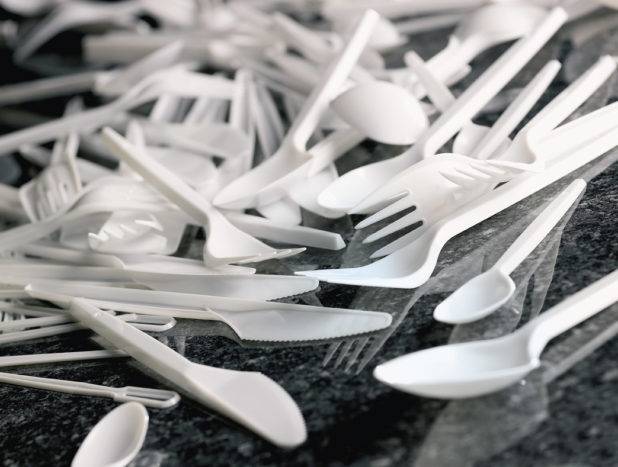Pomidor Quixote
Daily Stormer
January 10, 2020
You cannot run from this.
The ubiquity of the chemical diethylhexyl phthalate (DEHP) makes it inescapable.
Before getting to the study, take a look at some of the places in which you can find it.
DEHP is a component of many household items, including tablecloths, floor tiles, shower curtains, garden hoses, rainwear, dolls, toys, shoes, medical tubing, furniture upholstery, and swimming pool liners. DEHP is an indoor air pollutant in homes and schools. Common exposures come from the use of DEHP as a fragrance carrier in cosmetics, personal care products, laundry detergents, colognes, scented candles, and air fresheners. The most common exposure to DEHP comes through food with an average consumption of 0.25 milligrams per day. It can also leach into a liquid that comes in contact with the plastic; it extracts faster into nonpolar solvents (e.g. oils and fats in foods packed in PVC). Fatty foods that are packaged in plastics that contain DEHP are more likely to have higher concentrations such as milk products, fish or seafood, and oils. Food and Drug Administration (FDA) therefore permits use of DEHP-containing packaging only for foods that primarily contain water.
DEHP is in virtually everything, and a study on worms suggests that it could be damaging people’s DNA and causing infertility.
A banned chemical once used in toys, clothes, food packaging and cosmetics may lead to fertility problems, according to a study on worms.
Scientists fear diethylhexyl pthalate, which makes plastics bendy and is still used in recycled PVC, damages DNA.
Past studies have claimed DEHP may make both men and women less fertile but the way it could do this has not been well understood.
A study on roundworms revealed that it increased the risk of DNA strands snapping while the body is trying to make sperm or eggs.
It also made them less able to repair broken DNA and led to defects in the chromosomes, which then caused genetic problems which stopped sperm and eggs growing properly and made embryos less able to develop.
Scientists not involved with the research said there was no proof the same problems would happen in humans and older research had suggested they would not.
Yeah, let’s just defend plastic and treat the fact that more and more people started turning into androgynous beings as plastic popularity increased as a big coincidence.
Multi-causal blah blah blah, many variables to consider yadda yadda yadda.
A team at Harvard University in Boston, Massachusetts, did the research by exposing the creatures to DEHP in a lab.
DEHP was used for building, car manufacturing and producing food packets, as well as medical devices and electrical cables.
Because DEHP was classed as a ‘reproductive toxicant’ – meaning it could damage fertility – it was banned under European law in 2015.
It’s still in circulation though.
Five years is not enough time to expect every toy, every furniture upholstery, every swimming pool liner, and every piece of clothing containing DEHP to completely disappear.
But EU members voted in the following year to allow it to continue to be used in the production of recycled PVC.
The move means it is still used in new items as well as existing in the environment in items made before the ban or in countries where it’s still legal.
In their study, the researchers did experiments to see how the chemical affected a species of worm called Caenorhabditis elegans (C. elegans).
They used amounts of DEHP which they said were ‘within the range detected in the human population’ – the chemical has been detected in people’s urine.
Plastic urine. Cool.
Now I wonder if it could also be found in semen.
Although the worms are tiny and only grow to about 1mm long, their genes are very similar to humans’ so are useful for DNA research.
The study found that when worms were exposed to DEHP their DNA was more likely to break and less likely to be able to repair itself.
The genetic defects which occurred as a result of this meant embryos were less able to grow and the worms were less fertile.
‘[DEHP affects chromosomes] in part by altering chromatin [genetic material] during the production of eggs and sperm,’ said Dr Mónica Colaiácovo, who led the research.
‘Our studies link this alteration to increased levels of DNA double-strand breaks and impaired ability to properly repair these breaks.
‘This underscores the importance of identifying better alternatives for replacing DEHP.’
The researchers said other studies had shown ‘doses relevant to human exposure’ had shown the chemical could damage fertility in mice.
At this point, plastic should be declared a crime against humanity.
Pictured: insanity.
Besides eating the foods that your great-grandfathers would have considered foods, it would be prudent to also try to cook as they cooked, with utensils and kitchenware that they’d know how to operate and which are made from the same materials that they’d have recognized.
 Daily Stormer The Most Censored Publication in History
Daily Stormer The Most Censored Publication in History







